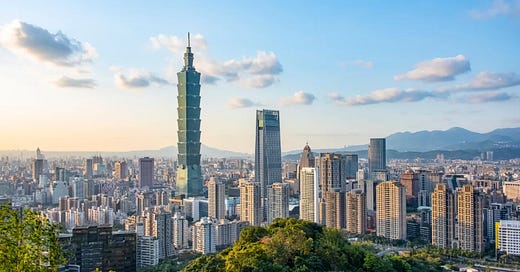Does Taiwan have a free speech problem?
In the face of external threats, liberal democracies must walk a difficult tight-rope, responding forcefully without undermining freedoms.
“These are jittery times in Zhongzheng, Taiwan’s Westminster. The island’s most important supporter, the United States, is now led by a man who resents, rather than is grateful for, the island’s enormous high-tech exports to the US. A few commentators wonder out loud whether Taiwan has become too economically dependent on America. There’s another large economy nearby that would happily boost ties.
Then there’s the military drills. The two Chinese characters for ‘Liberation’ have dominated the front pages here recently: some in reference to Trump’s tariffs bonanza, others referring to two days of surprise live-fire exercises by the People’s Liberation Army around the island. The median line in the Taiwan Strait, which both sides once tacitly agreed not to cross, has been confined to history in the last three years by repeated Chinese naval incursions. In the most recent drills, apparently a belated response to President Lai’s designation of Beijing as a ‘foreign hostile force’ in a speech last month, the Shandong aircraft carrier was at one point just 24 nautical miles off Taiwan’s coast.
But policymakers’ worries are not limited to these kinds of external threats. The government frets that trust in Taiwan’s institutions – as well as the population’s willingness to fight, and other factors that add up to population resilience – is slowly eroding. The administration is pushing back, trying to enhance society’s resilience and cohesion. But in doing so, it is testing the limits of how liberal a democracy can reasonably remain in the face of deliberate attempts to divide and undermine it.”
My latest for the Spectator.


